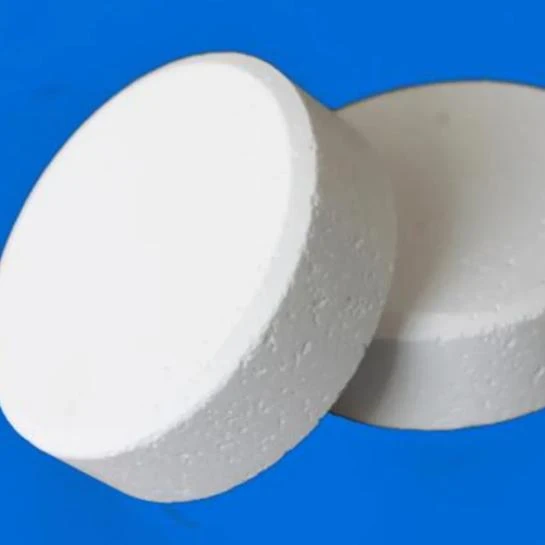
Understanding the Role and Importance of Anti-Caking Agents in Food Products
Understanding Anti-Caking Agents Their Importance and Application
In both industrial and culinary contexts, the term 'anti-caking agents' frequently arises, often with little explanation of their function or significance. Anti-caking agents are additives used to prevent the formation of lumps in powdered substances, thereby ensuring the materials remain free-flowing and easy to handle. These agents are crucial in various industries, and their benefits extend to enhancing the quality and usability of many household and commercial products.
What Are Anti-Caking Agents?
Anti-caking agents are substances that inhibit the clumping of powders. When moisture is introduced to a powdered product, it can lead to the aggregation of particles, resulting in clumps or cakes. This not only affects the aesthetic appeal but can also complicate the use of the product. Anti-caking agents work by either absorbing moisture or creating a barrier between the particles to minimize physical bonding.
Common anti-caking agents include silica gel, magnesium carbonate, calcium silicate, and sodium bicarbonate. Each of these has distinct properties that make them suitable for different applications. For instance, silica gel absorbs moisture effectively, while calcium silicate is known for creating a barrier that helps maintain the free-flowing nature of powdered substances.
Importance of Anti-Caking Agents
1. Enhanced Product Quality The primary function of anti-caking agents is to improve product quality. In food production, for example, they ensure that powdered ingredients like salt, sugar, and spices maintain their consistency and do not form clumps, making them easier to measure and use.
2. Improved Handling and Storage In industrial settings, anti-caking agents facilitate the handling and storage of bulk powders. For example, in the case of cement or fertilizers, anti-caking agents prevent the material from hardening and becoming unusable during transport and storage.
anti caking agents

3. Extended Shelf Life By preventing clumping and maintaining the integrity of the powdered product, anti-caking agents can also contribute to extending its shelf life. They help preserve the quality of food products by minimizing exposure to moisture, which can lead to spoilage.
4. Cost-Effectiveness The use of anti-caking agents can also be economically beneficial. By ensuring that products remain free-flowing, manufacturers can reduce waste and improve efficiency during production and packaging processes.
Applications of Anti-Caking Agents
Anti-caking agents are widely used across several industries. In the food industry, they are commonly found in table salt, powdered sugar, coffee creamer, and spices. Their ability to maintain flowability is crucial for food manufacturers, as it directly affects the cooking and baking processes.
In the pharmaceutical industry, anti-caking agents are used in powdered medications to ensure even distribution of the active ingredients, enhancing the efficacy and reliability of the products. Similarly, in agriculture, fertilizers often include anti-caking agents to prevent clumping during storage and application.
Furthermore, anti-caking agents play a critical role in the construction industry, especially in products like powdered cement and plaster. Their use ensures that these materials remain usable over time, preventing clogging and ensuring smooth application.
Conclusion
Anti-caking agents may often fly under the radar, but their significance in various applications is undeniable. From preserving the quality of food products to facilitating the handling of industrial materials, they are essential for achieving optimal performance and usability. As industries continue to innovate and expand, the need for effective anti-caking solutions will persist, underscoring the importance of these additives in our everyday products. Understanding their role not only enhances our knowledge of food and product science but also illustrates the complex interplay of materials that contribute to our daily lives.
-
Aluminum Hydroxide: Quality Gels & Dried Gel AntacidNewsAug.31,2025
-
Buy High-Quality Trichloroisocyanuric Acid for Sale | TCCA 90% SupplierNewsAug.30,2025
-
Pure Sodium Dichloroisocyanurate Dihydrate | Powerful DisinfectantNewsAug.29,2025
-
Industrial Chemicals: Quality & Purity for Every IndustryNewsAug.28,2025
-
Nitrile Rubber Honoring Strict Production StandardsNewsAug.22,2025
-
Aspartame Ingredients Honoring Food Safety ValuesNewsAug.22,2025
-
Fertilizer for Balanced Plant NutritionNewsAug.22,2025
Hebei Tenger Chemical Technology Co., Ltd. focuses on the chemical industry and is committed to the export service of chemical raw materials.
-

view more DiethanolisopropanolamineIn the ever-growing field of chemical solutions, diethanolisopropanolamine (DEIPA) stands out as a versatile and important compound. Due to its unique chemical structure and properties, DEIPA is of interest to various industries including construction, personal care, and agriculture. -

view more TriisopropanolamineTriisopropanolamine (TIPA) alkanol amine substance, is a kind of alcohol amine compound with amino and alcohol hydroxyl, and because of its molecules contains both amino and hydroxyl. -

view more Tetramethyl Thiuram DisulfideTetramethyl thiuram disulfide, also known as TMTD, is a white to light-yellow powder with a distinct sulfur-like odor. It is soluble in organic solvents such as benzene, acetone, and ethyl acetate, making it highly versatile for use in different formulations. TMTD is known for its excellent vulcanization acceleration properties, which makes it a key ingredient in the production of rubber products. Additionally, it acts as an effective fungicide and bactericide, making it valuable in agricultural applications. Its high purity and stability ensure consistent performance, making it a preferred choice for manufacturers across various industries.





